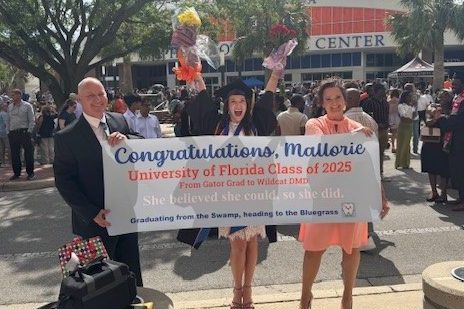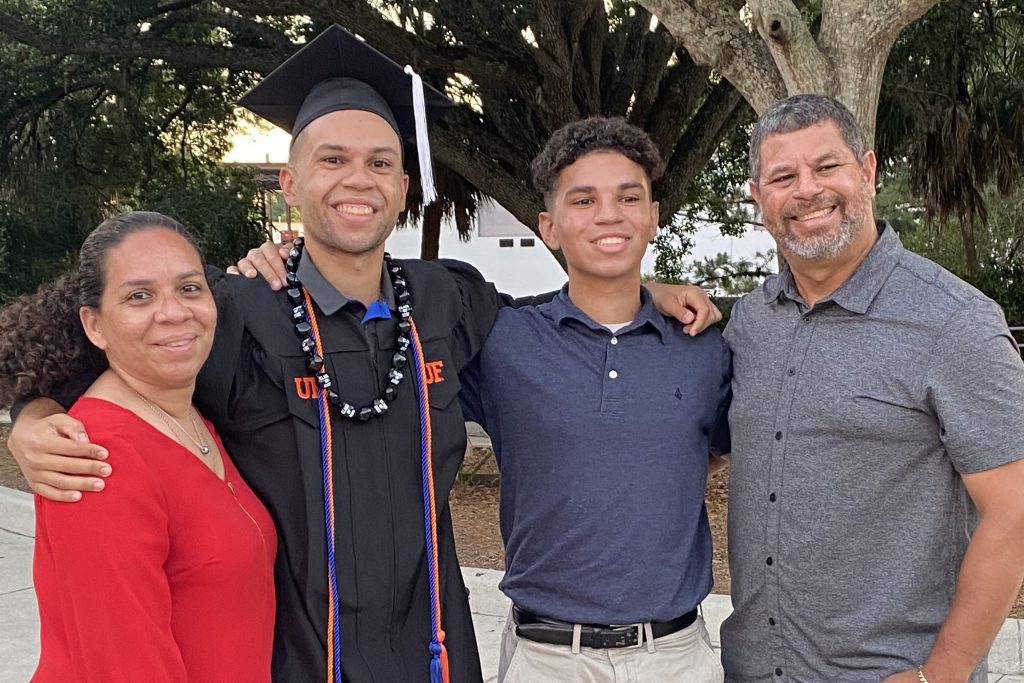HEO opens opportunities to a college degree
Few things in life can have such a drastic impact on a child’s future like access to a post-secondary education. Many families go into debt to provide their child with the opportunity to receive a college degree. The University of Florida fully understands this and, to mitigate the economic impact that a child’s college education poses to a family, has created the Higher Education Opportunity (HEO) program.
Created in 2003, the HEO provides tuition assistance in the form of a scholarship. It covers the in-state matriculation fees for a maximum of 132 credit hours toward an undergraduate degree. To date, 1,813 UF employees have been awarded the HEO scholarship for their child.
“The HEO program is an incredible benefit, and eligible employees can participate from the moment they join the university,” said Verlissa Ford, awards coordinator at UFHR Training & Organizational Development.
When the HEO was first created, only full-time TEAM employees were eligible to participate in the program. This year, the University of Florida is pleased to expand the eligibility criteria.
“UF Human Resources, with the support of former Interim President Kent Fuchs and Interim Provost Joe Glover, is excited to expand the program eligibility to include faculty,” said Melissa Curry, Vice President for Human Resources. “We are implementing the program for out-of-unit faculty for the 2026–2027 academic year, and the University is still in the process of bargaining the availability of the program to in-unit faculty.”
This year, 150 staff applicants and 100 faculty applicants will be selected to participate in the HEO program. Applications are due Nov. 3.
Michelle Watson, manager of administrative services in the UF College of Dentistry and a 2021 HEO recipient, credits the program for helping ease the burden of college expenses for her daughter.
“Because of [the HEO program], my daughter has been able to pursue her education with less financial stress,” said Watson, “and we’re thrilled to share that she recently graduated with her degree in Nutritional Sciences from UF’s College of Agricultural and Life Sciences … This moment would not have been possible without the generosity behind this program.”

While the application requires that children apply for UF admission, children not admitted to the university can still benefit from the program.
“Although the HEO is structured for attendance at the University of Florida, we do recognize that not all children will be admitted to the university,” said Ford. “If a child who was awarded the HEO is not admitted to UF, they have the option to attend a state of Florida public college of their choice.”

Cristina Hastings, Education and Training Specialist for the UF College of Medicine, received the HEO award twice—once in 2018 for her eldest son, who graduated from UF in 2020 with a bachelor’s degree in journalism, and again in 2019 for her youngest son, who currently attends Santa Fe College and is working towards a bachelor’s degree in computer science.
“The boys realized their college experience could have been different if they were not part of the HEO program,” said Hastings. “They understood how the program allowed their parents to have flexibility with finances, which allowed them to experience more in college.”
Beyond the tuition assistance, the HEO program stands out due to its flexibility. For example, children awarded the scholarship may continue to use it until they turn 26 years old. They may also take a semester — or gap year — and return to the university to complete their studies as long as they have maintained a cumulative GPA of 2.75 or higher. If needed, a child may study part-time while completing their degree. In addition, parents of multiple college-aged children may submit one child per year into the drawing.
To Ford, the fact that the HEO provides access to an education that some children might not have otherwise received is of crucial importance.
“Some parents need financial support to provide their child with an undergraduate education, and it’s a huge benefit that UF is able to offer that opportunity,” said Ford. “Parents often speak about how grateful they are to have this benefit. It makes them feel good to know that UF not only cares about them as an employee but also cares about the future of their child.”